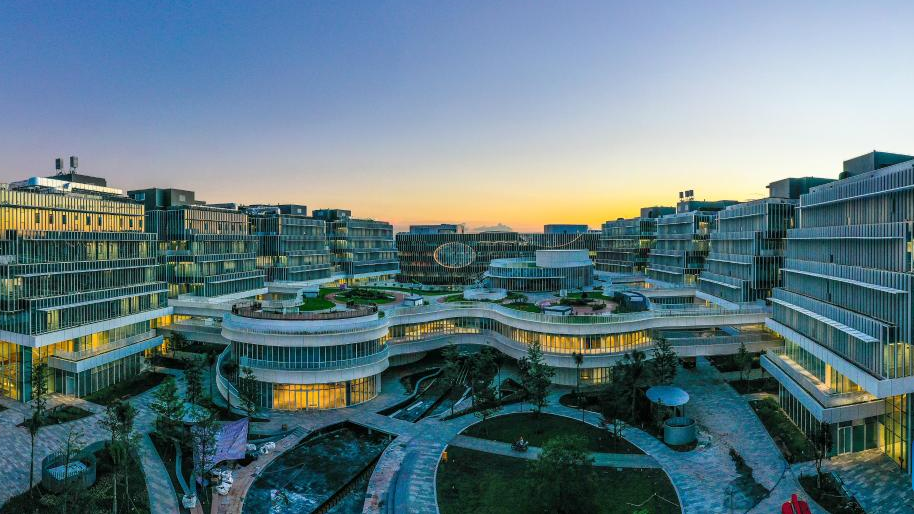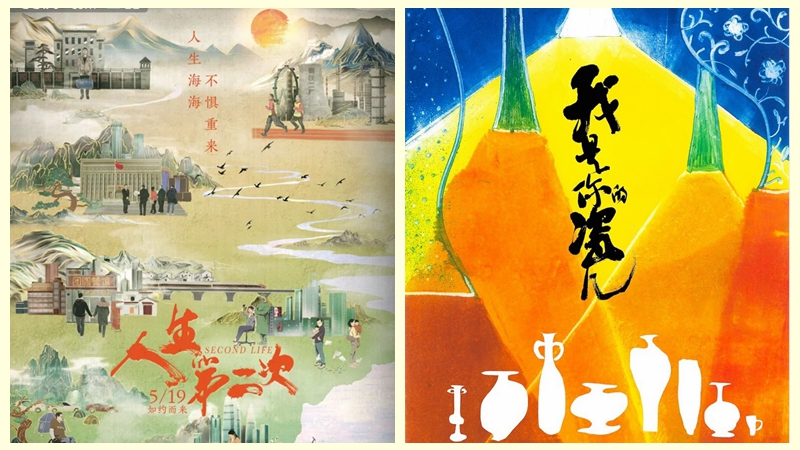Cultural tourism boosts rural revitalization in mountainous village
CHANGSHA, Aug. 19 (Xinhua) -- With sprawling grain fields, blossoming lotus flowers, and neat houses with gray roofs and white walls scattered among lush trees, visitors are often impressed by the idyllic view when entering Qingxi Village.
Located in the city of Yiyang in central China's Hunan Province, Qingxi Village is the hometown of Zhou Libo, a late famous Chinese writer. Taking Qingxi Village as the background, Zhou created several literary works, which made Qingxi renowned as the "hometown of literature."
The farm village started to build its cultural tourism brand in 2008 to turn the cultural resources into wealth. They developed a series of scenic spots, such as restoring the writer's former residence and constructing an agricultural culture experience park and an exhibition hall displaying the village's changes in the past years.
Tourism has brought villagers tangible benefits. The annual per capita income of Qingxi villagers increased from about 4,600 yuan (about 678 U.S. dollars) before 2005 to 8,800 yuan in 2010, according to He Zhi'ang, Party chief of Qingxi Village.
In 2018, in line with the country's rural revitalization strategy, Qingxi launched a quality improvement project on its scenic spots.
In cooperation with a state-owned tourism company, in 2018, Qingxi Village replanned its spatial structure and improved the tourism facilities for overall development. Ranging from the Zhou Libo-themed bookstore and theater to various rustic homestays, Qingxi has developed over 20 natural and cultural scenic spots and formed a relatively complete cultural and tourism service-industry chain.
During the peak tourist season, many book clubs and research institutions will carry out cultural activities here, promoting the booming development of homestays, artistic performances, and sales of specialty agricultural products.
The village received nearly 1 million visits in 2021. The per capita disposable income reached over 50,000 yuan in 2021.
Villager Liu Shengnan has run a tea house not far from Zhou's former residence for more than six years, selling local specialty tea and snacks. With the rising number of tourists year by year, her small shop now makes an annual profit of more than 100,000 yuan.
"Opening a tea house has brought many changes to my life. I used to have almost no income, but now I have a steady income and a more fulfilling life," said Liu.
The village's development is encouraging more people to return to this hometown to start businesses. In the past three years, over 200 people have returned to Qingxi.
Deng Xudong is one of the returnees. He left south China's economic hub of Shenzhen Municipality for Qingxi Village in 2019. Now he is mainly engaged in the farming and breeding industry and the livestream e-commerce industry.
"Qingxi has changed greatly over the past years, and I want to be a part of my hometown's revitalization. The bright prospects in rural development give young people plenty of opportunities for success," said Deng.
Photos
Related Stories
- China to strengthen meteorological services for tourism
- China improves rail, air travel services in summer travel rush
- Wuxi County in SW China's Chongqing makes efforts to boost local tourism
- Ancient porcelain-making town regains vitality with tourism development
- Summer vacation destinations in China hit by new resurgence, to 'deal blow to tourism in short time'
- Luanping in north China innovates tourism development
Copyright © 2022 People's Daily Online. All Rights Reserved.









